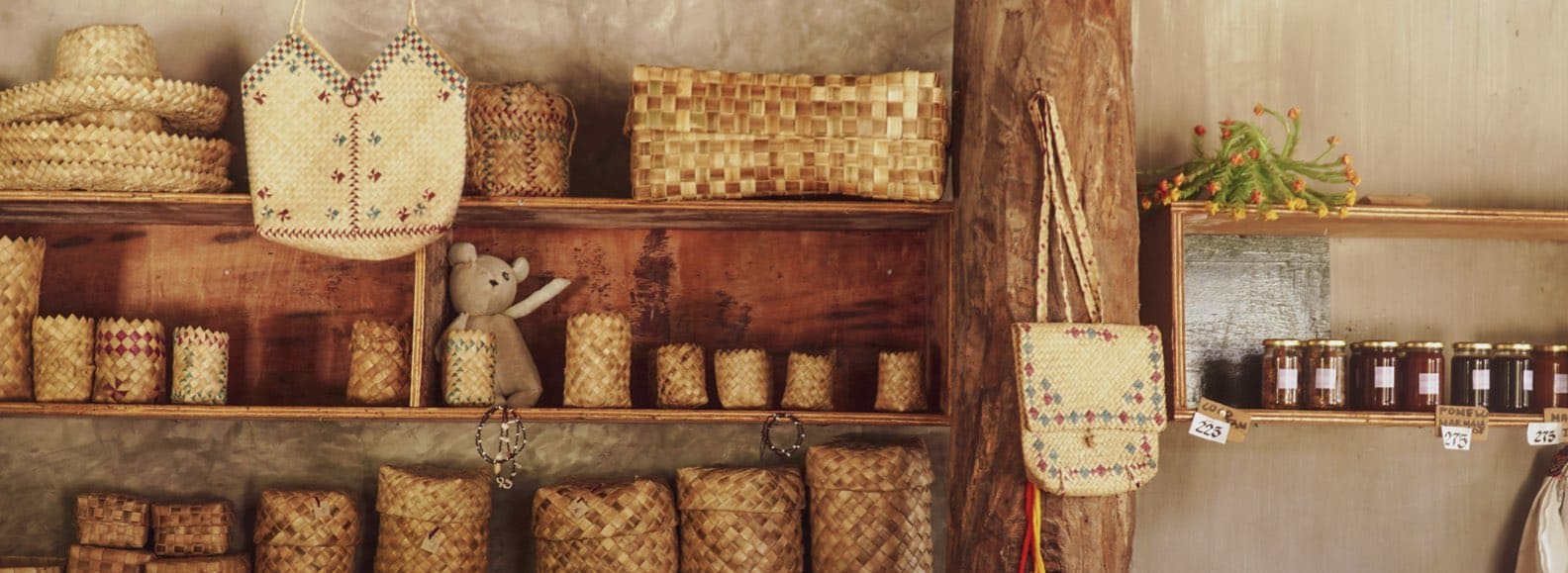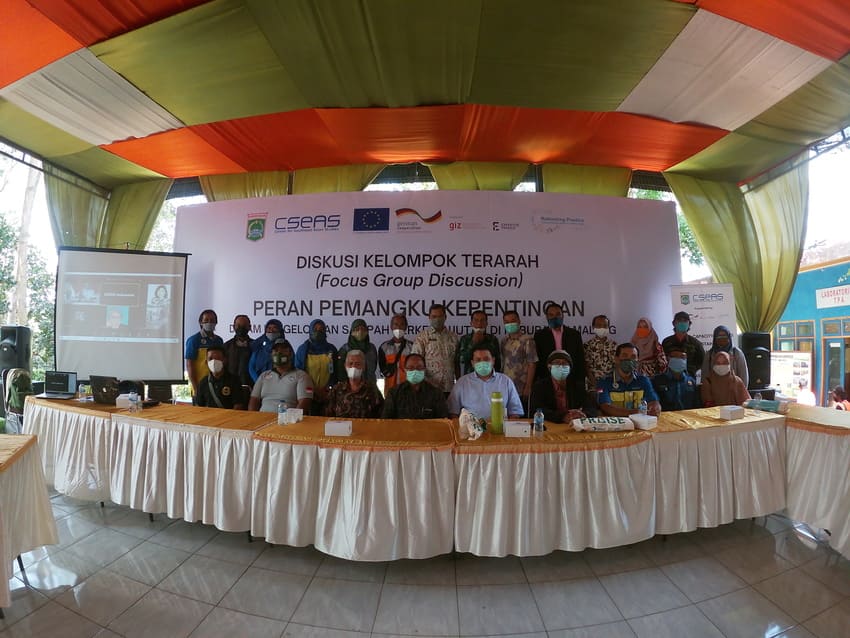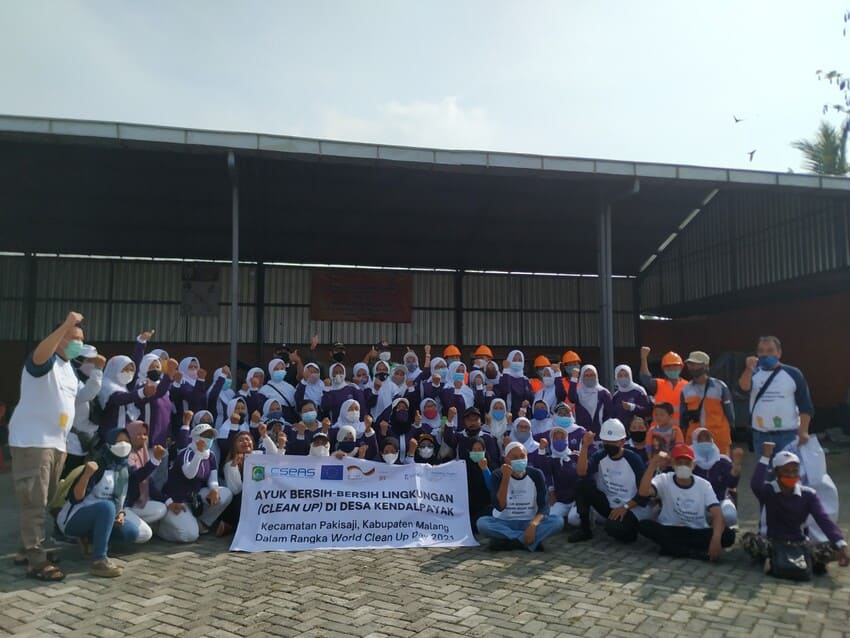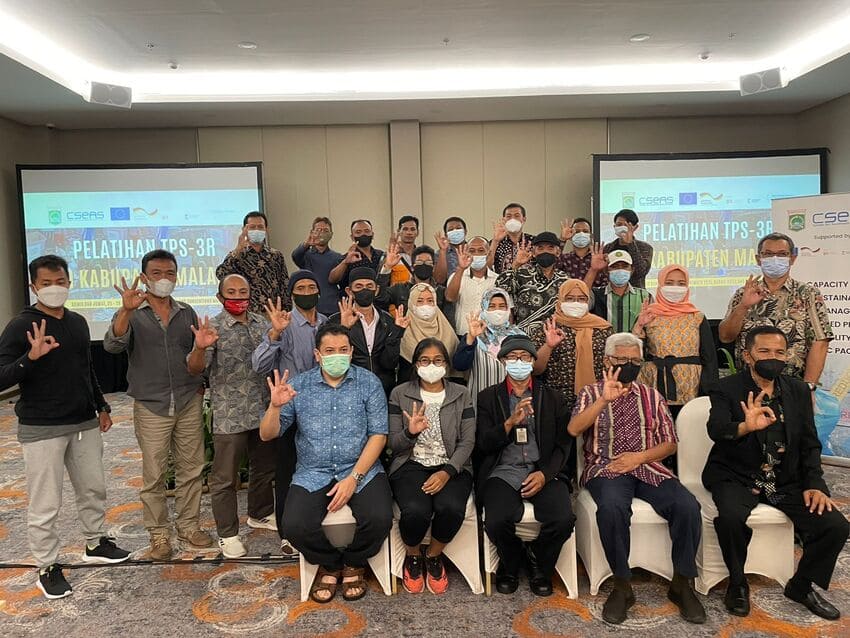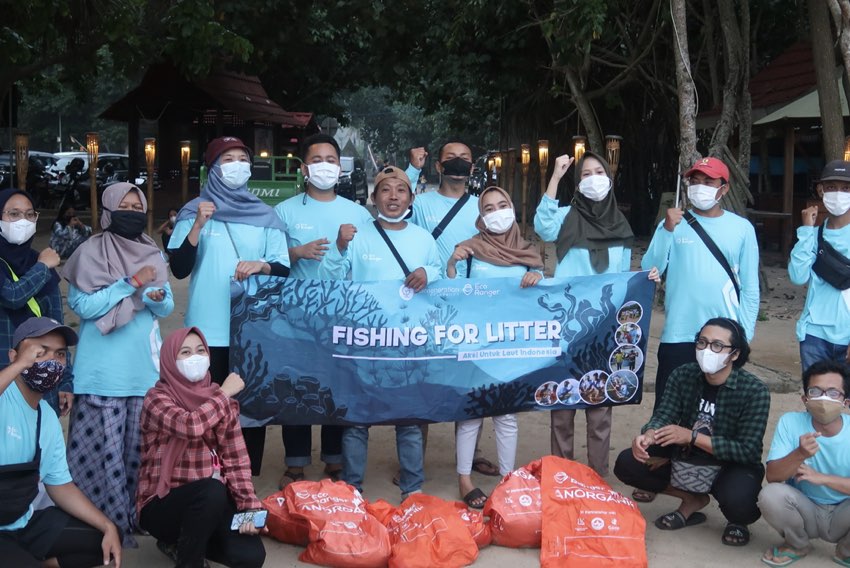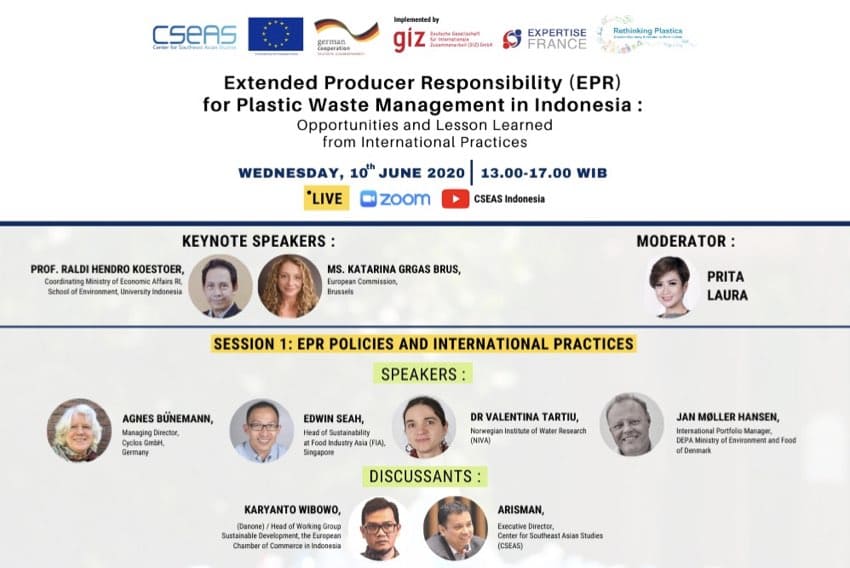Sustainable Waste Management in Malang City
TPS-3R facilities are changing the waste management landscape in Indonesia. What sound like robots from Star Wars or computer-generated passwords are actually waste collection and segregation points. In TPS-3R facilities, waste is collected and sorted: plastic waste is sent to be recycled, organic waste is used as compost or animal feed, and only what’s left goes to landfill.
The facilities are intended to be self-sustaining: they generate their own income through community contributions, i.e. waste collection fees, and the sale of products from waste processing, such as compost, plastic and paper. TPS-3R points support policies and strategies in Indonesia to reduce waste at source. They also play an important role for producers, who – according to the Extended Producer Responsibility (EPR) system in the country – have to contribute to reducing waste through prevention, recycling and reuse. They collaborate with TPS-3Rs by using their facilities as collection points for their product packaging and containers. This pilot project supported and improved the TPS-3R facility Langgeng Jaya in Kendalpayak Village. The results show that EPR in Indonesia can benefit from improving the technical and operational aspects of TPS-3R facilities and increasing community engagement.
“This pilot project can contribute to the entire waste management system in Indonesia, because at the moment, people are quite sceptical of waste banks and recycling remains low. But if people start segregating waste in their households, it would increase the recycling at waste banks and TPS-3Rs. And this is in line with the strategy of the Indonesian government to minimise the waste going to landfill.”
Arisman, Executive Director, Center for Southeast Asian Studies (CSEAS) Indonesia
WHAT HAVE WE ACHIEVED IN xx MONTHS?
1. Everyone can make a difference
An important part of the project was working with the communities. We met with 40 local leaders and members of 442 households in Kendalpayak Village to explain why and how they could sort their waste effectively at home. In workshops and doorstep conversations, they learned more about the positive environmental impact they could have by using different bins for organic and inorganic rubbish. With the newly acquired knowledge and waste sacks provided, the households started segregating waste and managed to reduce their contribution to landfill by an astonishing 65% in only nine months.
2. More actors in better facilities
When Kendalpayak community members learned how TPS-3R in Langgeng Jaya operated and how they could contribute to a sustainable waste management system, their willingness to sort waste increased dramatically. And as soon as the facility started receiving the segregated waste, processes became more efficient and operators at the facility needed two hours less to complete their work. With the time gained, the workers can focus on other areas of business, such as breeding maggots (of the black soldier fly) and selling organic compost. This provides an additional source of income for the facility. The workers can now also handle a greater quantity of waste, while the amount of valuable waste being sold to dealers has increased due to segregation. This generates more income.
To improve the facility and its operations further, we have introduced new technical solutions, such as installing separators in the waste carts to keep the waste segregated during transport. In this way, people are reassured that segregating waste in their homes is worthwhile because it will not be mixed up again during collection. We also provided equipment, such as gloves, masks, boots, helmets and vests, and the staff received training on Health and Safety Protocol, Social Entrepreneurship and Financial Management and Marketing. Signs have been put up to remind them of the health and safety protocols as they carry out their work.
We have shared our lessons on waste segregation and the optimisation of TPS-3R facilities with the local government in the form of two policy papers. And we have made a recommendation on the need for better information to communities about waste segregation to encourage them to sort waste in their homes.
WHAT ARE OUR RECOMMENDATIONS FOR SIMILAR PROJECTS?
- Communities: Encourage communities to sort waste in their homes by providing segregated waste storage containers for one or multiple households, especially for lower-income homes. The local government should provide guidance to communities. Local regulations and financial incentives encourage participation. Engaging local community leaders is helpful to ensure acceptance from communities.
- Facilities: Provide funding and equipment, such as vehicles with several compartments for separate waste collection and vehicles focusing on only one waste type.
- Workers: The TPS-3R workers need technical guidance on how to use and maintain machines, such as waste choppers and plastic grinders, in order to maximise efficiency, maintain facilities and prevent accidents. To protect workers against waste-related risks, such as germs and sharp objects, workers should receive personal protective equipment and be regularly reminded of protocols via safety signs in the TPS-3R facilities.
- Politics: Segregated waste collection systems are a new concept in Indonesia. The local government needs to introduce guidelines and regulations to encourage communities to get involved. They should also provide a strong institutional and legal basis for TPS-3R facilities, strengthen their management, and monitor the continuity and sustainability of the operation and maintenance of the facilities and infrastructure.
- Producers: In future, producers can use TPS-3R facilities to collect used product packaging. As a contribution, producers can invest in the development of existing TPS-3Rs and training for TPS-3R managers to advance the implementation of EPR policy.
- Recycling: The recycling industry and informal sector are vital to reducing plastic waste pollution. TPS-3R facilities should involve and cooperate with recycling companies to transition towards a circular economy. Waste collectors in the informal sector should be able to deliver their recyclable waste to the TPS-3R or even be employed by the facility, if possible and in their interest.
Watch project videos and recordings online:
- Pemenang lomba kompetisi video Rethinking Plastic - YouTube
- Pemenang lomba kompetisi video Rethinking Plastic - YouTube
- Pemenang lomba kompetisi video Rethinking Plastic - YouTube
Implemented by: Center for Southeast Asian Studies (CSEAS) / https://cseasindonesia.com/
Instagram: CSEAS Indonesia (@cseas_indonesia) • Instagram-Fotos und -Videos
YouTube: CSEAS Indonesia - YouTube
Twitter: CSEAS Indonesia (@cseas_indonesia) / Twitter
Facebook: CSEAS Indonesia - Home (facebook.com)
Related Documents
- Policy_Brief_2_-_Optimization_of_TPS-3R_to_Support_the_Implementation_of_Extended_Producer_Responsibility_EPR_in_Malang_Regency.pdf
- Policy_Brief_1_-_Waste_Segregation_and_Segregated_Waste_Collection.pdf

